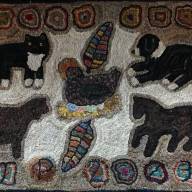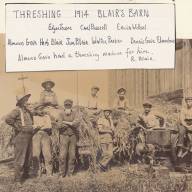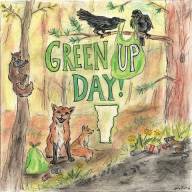Spring is pending and the return of warm weather also means the return of black bears. Emerging from hibernation and hungry for calories, bears find trash cans, birdfeeders, and compost piles to be easy meals. This behavior leads them to losing their wariness of people and can result in damage to property, cars, and homes.
On April 10 from 6:30 to 8 p.m., all are welcome to join Mad River Valley Bear Initiative for a presentation on living alongside bears from Sarah Crockett, MD, educator and advocate for human/bear coexistence. The presentation takes place at the Mini-Bear Room in the Schoolhouse at Sugarbush’s Lincoln Peak. It will cover black bear ecology, common causes of conflict between bears and the community, and practical ways people can change their behaviors to reduce conflict.
Crockett is an emergency department physician with Dartmouth Health, specializing in wilderness medicine. Her passion for the outdoors and wilderness medicine as well as mentorship from Ben Kilham of the Kilham Bear Center has led to her interest and involvement in providing community education on black bear coexistence.
The Vermont Fish and Wildlife Department has begun to receive reports of bears coming out of their dens and is urging Vermonters to remove their birdfeeders and take additional steps now to prevent conflicts with bears over the spring and summer.
“Do not wait to take down your birdfeeders and bearproof your yard until a bear comes to visit,” said Jaclyn Comeau, the Vermont Fish and Wildlife Department’s Bear Biologist. “You need to act now to head off bear conflicts over the spring and summer, even if you have never had a bear visit your property before.”
Bear incidents have been on the rise over the past several years Officials believe this trend is a result of Vermont’s healthy black bear population learning to associate people and food over multiple generations. Even with a steady increase in the number bears harvested by hunters in recent years – including a record harvest in 2024 – Vermont’s bear population has been stable over the past two decades and shows signs of growth over the past five years.
Shorter winters also mean that bears are emerging from their dens earlier in the spring. In recent years bear activity has begun in mid-March. This is roughly two weeks earlier than what is traditionally considered the start of “bear-aware season” in northern New England.
The department asks Vermonters to take the following proactive steps for coexisting with bears:
- Take down birdfeeders between mid-March and December.
- Store garbage in bear-resistant containers or structures, trash cans alone are not enough.
- Follow the steps on web page for composting in bear country.
- Use electric fences to keep chickens and honeybees safe.
- Request a bear-resistant dumpster from waste haulers.
- Feed pets indoors.
- Never feed bears, it is illegal.
“Deep snow may delay some bears from emerging from winter dens until April, but mid-March is the time for Vermonters to prepare for the early risers by taking down o birdfeeders, making sure garbage is secure, and protecting backyard chickens and bees with an electric fence,” said Comeau. “This will help teach bears that our yards and neighborhoods are not good places to search for food, but it will only work if everyone does their part.” Taking these precautions will also help reduce the chance of attracting other wildlife species such as raccoons, skunks, and rodents.
The Vermont Fish and Wildlife Department also asks Vermonters to submit reports of bears engaging in potentially dangerous behavior like targeting birdfeeders and garbage, feeding on crops or livestock, or investigating campgrounds. Reports can be submitted on the department’s Living with Black Bears web page. The data help biologists keep track of bear incidents and provide early interventions to head off conflicts.
The Mad River Valley Bear Initiative is a local volunteer group that raises awareness about the bears. It is made up of folks from Warren, Waitsfield, Fayston, Duxbury, and Moretown. Learn more about its work and find resources for living alongside black bears at https://MRVBears.org.













